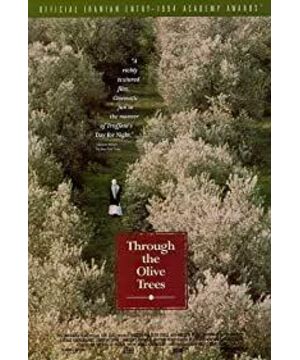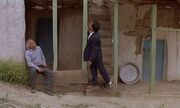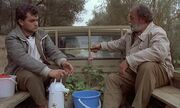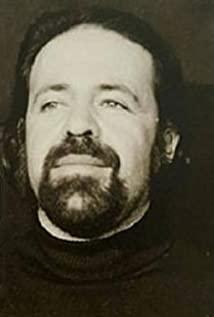Today, the concept of marriage and love is being re-dominated by "matching a family", which makes this film even more thought-provoking.
An illiterate wants to marry a literate girl - why does it sound so harsh? Why do common sayings like "Toads want to eat swan meat" and "Flowers stick in cow dung" come up conditioned reflexively? Because we have become too accustomed to using visible but one-sided information to generalize a person we do not know. When you see an advantage, you amplify it infinitely, and vice versa.
We are too accustomed to doing serious math problems in the issues of love and marriage - appearance, knowledge, character, health, wealth, etc. - to weigh ourselves and calculate the value chips of the other party. The party with the lower score either directly gave up the exciting guest, and didn't dare to talk to him; or he couldn't help thinking, if I work harder and improve a little bit in this or that area, I'll be eligible to be with the TA - but there Before, "I" didn't deserve it. When will it be "worthy"? Even if there is a "worthy" day, two people with equal stakes on both ends of the scale can fall in love and get married on the spot, and harvest happiness?
Houssein showed me an ancient and simple love paradigm that is different from today's. There is a sober self-awareness in him, an urgent determination to love: I know that I am illiterate, and I also know that you may not want to accept that your partner is illiterate. But I want you to know that I am sincere and gentle; I know that my current job is humble, but the salary is enough to support a family and enough for you to study. As soon as I have the opportunity, I will devote myself to a better job, so that people around me will not look down on you. I want to promise you a happy future. I'm not trying to read more books to make myself "worthy" of you, because I'm not doing math. I am who I am, you either accept it or reject it. If you don't want to answer for a while or don't know how to answer, I choose to catch up and wait for you to speak.
Houssein is blindly brave and optimistic about love. He kept ranting, asking questions, chasing, but never belittling himself, he just put himself in a vulnerable position, revealing everything about himself without knowing the other person. Tahereh at the moment is the best look in his fantasy, and he chooses to embrace that look directly, even if he may realize in the future that he has lied to himself.
But isn't that the mystery and fun of love?
The long shot at the end is really good. The distance between the two suddenly narrowed, and they should have said something. Then the girl continued to walk forward, and the boy ran back the same way. Combining the changes in the background music and normal logical speculation, it should be a successful confession! So happy for them! It really doesn't matter what they say. Many years later, when I recall this movie, I will think of them walking back and forth under the olive trees with flower pots in their arms, and they will walk through the olive groves, suddenly closing in on the endless meadows, and finally go their separate ways. Leaving, the boy seemed to be running happily. The beauty of the picture, the beauty of the blank space, the beauty of the imagination, is greater than any language.
View more about Through the Olive Trees reviews








